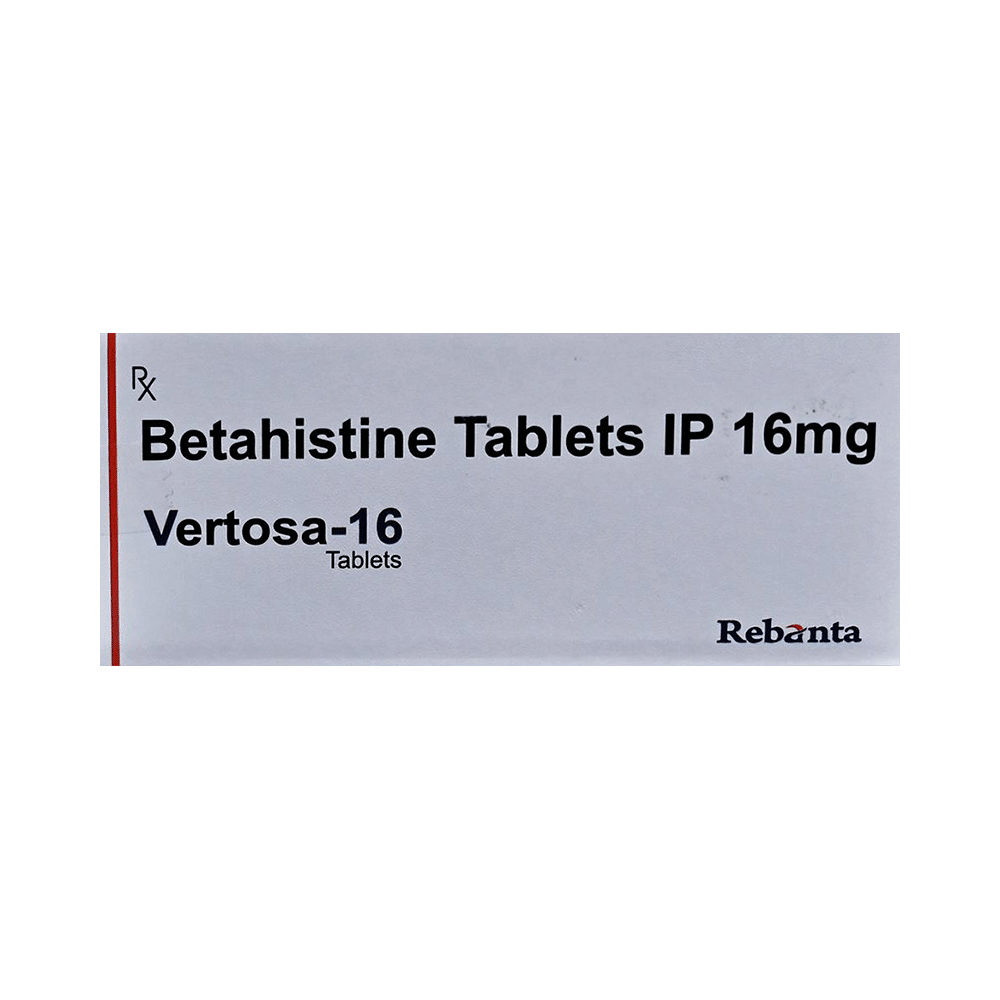
Vertosa 16 Tablet
Manufacturer
Rebanta Health Care (P) Limited
Salt Composition
Betahistine (16mg)
Key Information
Short Description
Vertosa 16 Tablet is used to prevent and treat a disorder of the inner ear known as Ménière’s disease, which includes symptoms such as dizziness (vertigo), ringing in the ears (tinnitus), and loss of hearing, probably caused by fluid in the ear.
Dosage Form
Tablet
Introduction
Vertosa 16 Tablet should be swallowed whole with water and taken at the same time(s) each day to get the most benefit. Your doctor will decide what is the correct dose to relieve your symptoms and how often you need to take it. You may need to take this medicine for several months and you should take it for as long as prescribed by your doctor even if you start feeling better. The most common side effects include headache, feeling sick, and indigestion (dyspepsia). You may also get stomach pain and bloating. Taking the medicine with food can help reduce stomach problems.
Directions for Use
Take this medicine in the dose and duration as advised by your doctor. Swallow it as a whole. Do not chew, crush or break it. Vertosa 16 Tablet may be taken with or without food but it is better to take it at a fixed time.
How it works
Vertosa 16 Tablet is a histamine analog. It works by improving the blood flow in the inner ear which reduces the pressure of excess fluid there. Excess fluid can send signals to the brain causing nausea, dizziness or spinning sensations (symptoms of Ménière's disease). Vertosa 16 Tablet additionally dampens down the nerve signals sent from the inner ear to the brain relieving the symptoms of Ménière's disease.
Quick Tips
You have been prescribed Vertosa 16 Tablet to relieve vertigo (dizziness) hearing problems and tinnitus (noise in the ear) associated with Ménière's disease. It can only decrease the number and severity of attacks but may not completely stop them. Taking it with food can help reduce stomach problems. Take it at the same time each day to maintain a steady amount of the medicine in your body. Inform your doctor if you have a history of stomach ulcer, asthma, or low blood pressure.
Related Medicines
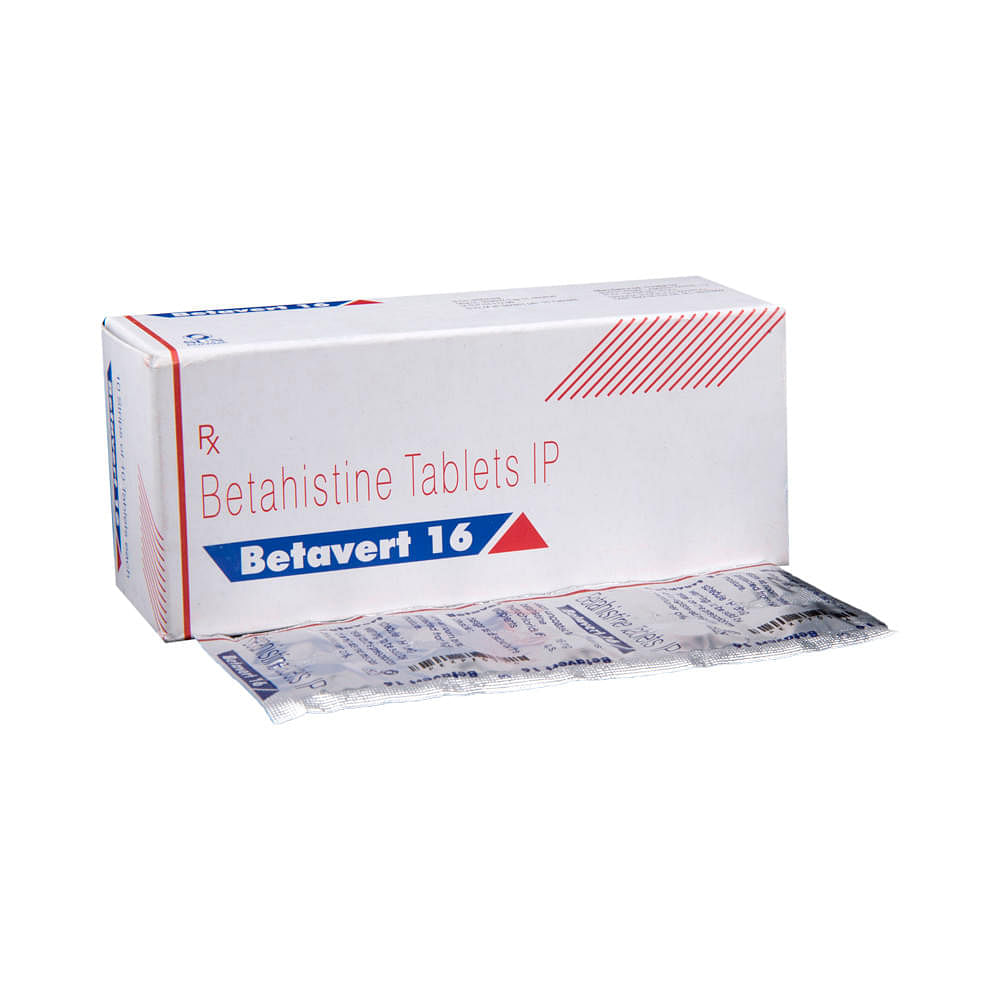
Betavert 16 Tablet
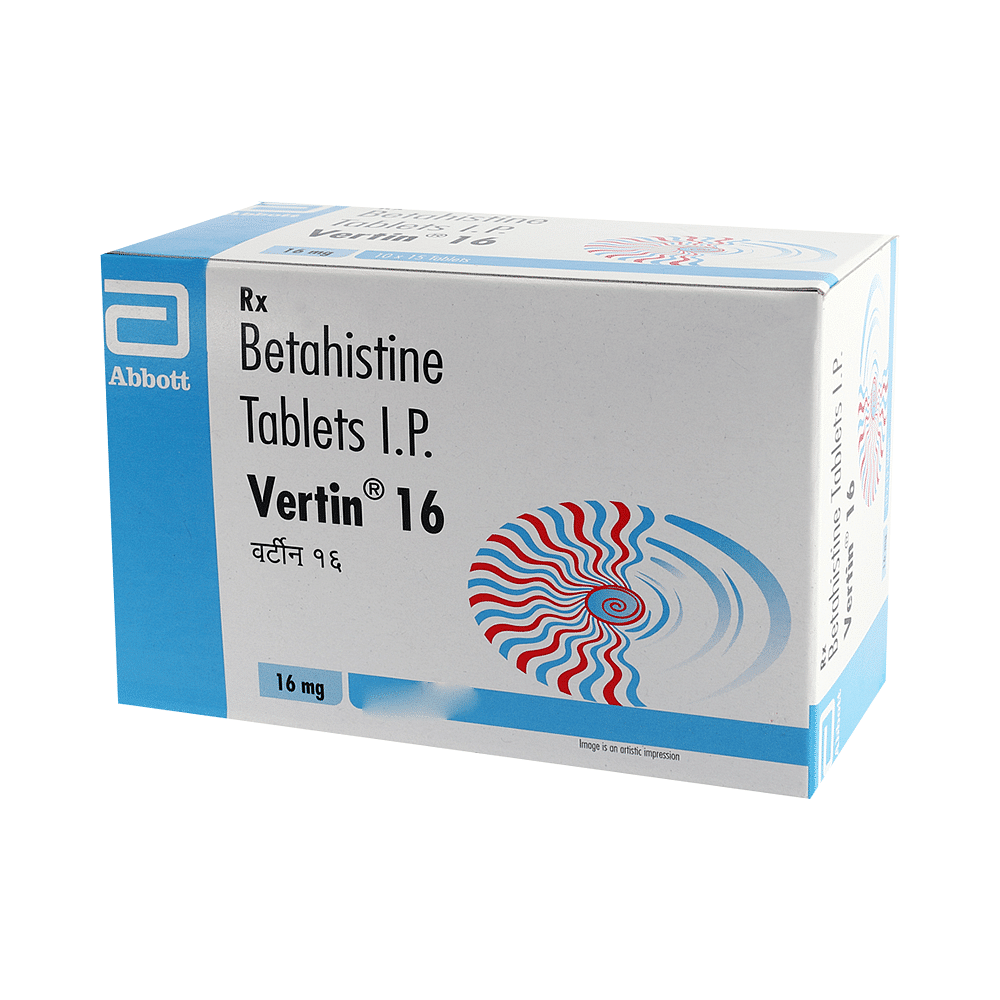
Vertin 16 Tablet
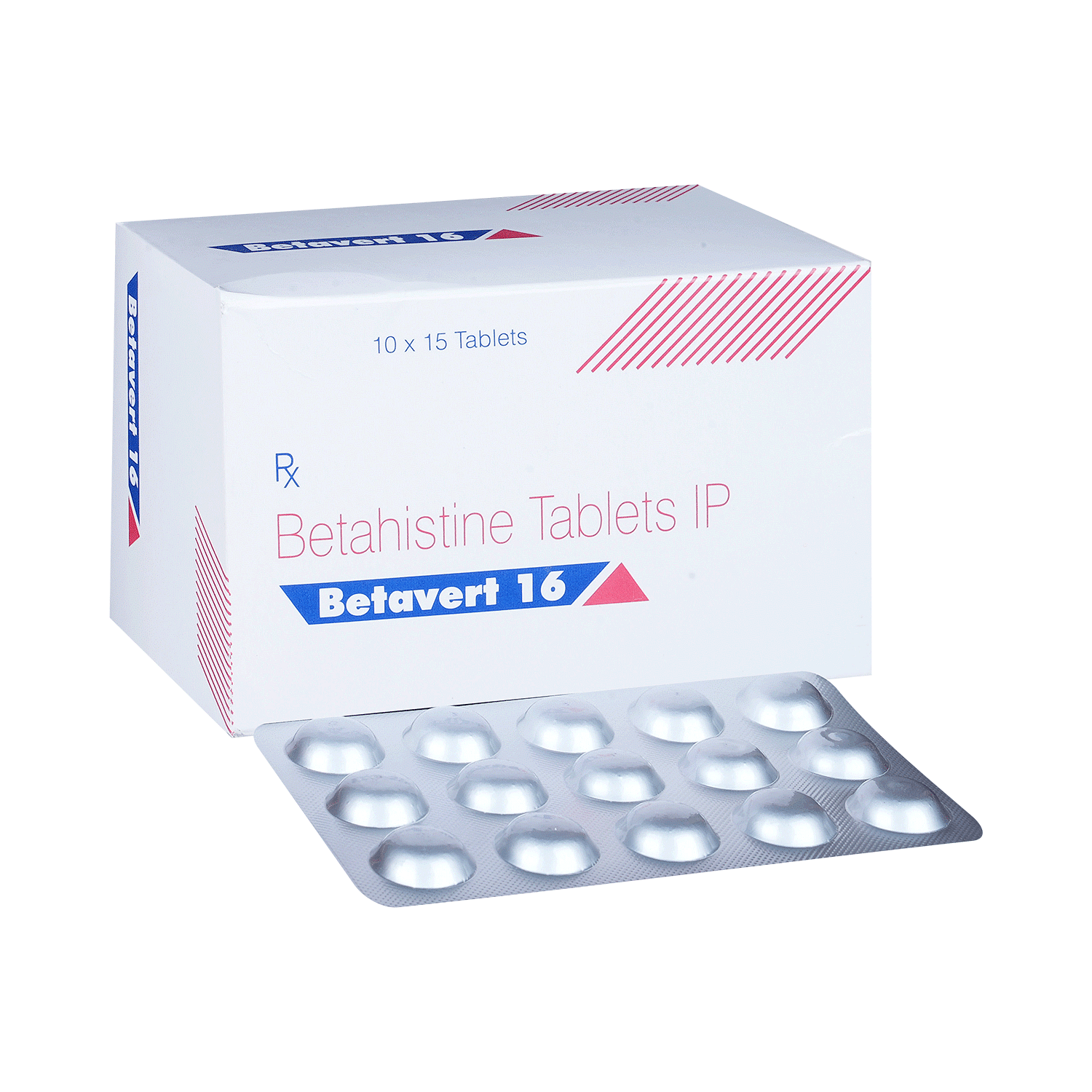
Betavert 16 Tablet
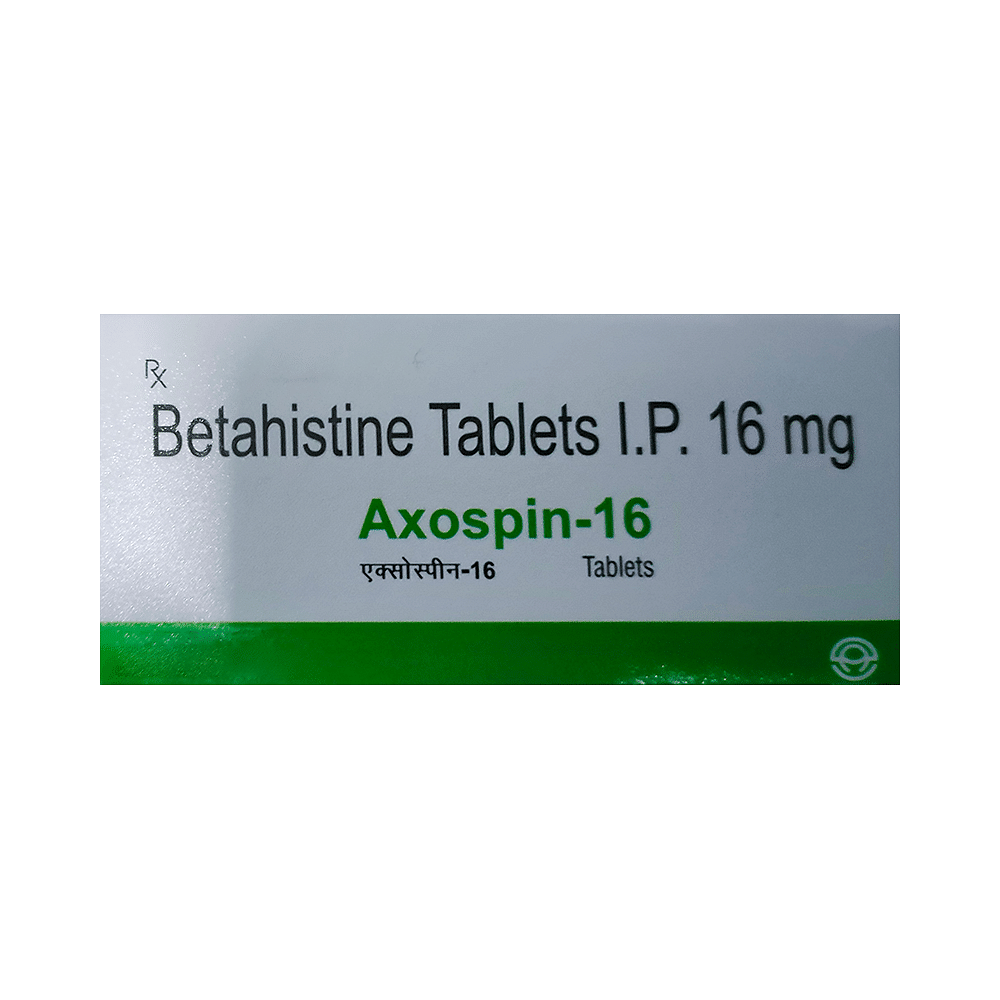
Axospin 16 Tablet

Vertifree 16mg Tablet

Spingard 16mg Tablet

Betaspin 16mg Tablet

Bisver 16mg Tablet

Vertidose 16mg Tablet

Carelet 16mg Tablet
Frequently asked questions
What is Meniere's disease, and does it go away?
Meniere's disease is a disorder affecting the balance and hearing organs in the inner ear, characterized by symptoms such as vertigo, fluctuations in hearing, tinnitus, and pressure in the ears. Dizziness may also occur, leading to nausea and vomiting. Treatment for Meniere's disease depends on individual factors, and consulting a doctor can help determine the best course of action.
Is Vertosa 16 Tablet effective?
Vertosa 16 Tablet is effective when used as directed by your doctor. It is essential to continue taking the medication as prescribed, even if you experience improvement in your condition, to avoid the symptoms from returning or worsening.
What triggers Meniere's disease?
Meniere's disease can be triggered by various factors, including stress, overwork, fatigue, emotional distress, underlying illnesses, and pressure changes. Certain foods, such as dairy products, caffeine, alcohol, and those with high sodium content, may also trigger the condition. A low-salt diet (2 grams per day) can help manage vertigo in Meniere's disease.
What if I forget to take a dose of Vertosa 16 Tablet?
If you miss a dose of Vertosa 16 Tablet, take it as soon as you remember. However, if it is almost time for your next dose, skip the missed dose and take the next dose at the scheduled time. Avoid doubling the dose to make up for the missed one, as this may increase the risk of side effects.
Is stress a reason for vertigo?
Mental stress can trigger vertigo and exacerbate existing conditions. However, stress alone is not a cause of vertigo.
What are the causes of vertigo?
Vertigo can be caused by a sudden drop in blood pressure, dehydration, or rapid changes in posture. It may also be triggered by motion sickness, certain medications, or inner ear problems (Meniere's disease, acoustic neuroma). In some cases, vertigo can be a symptom of other underlying disorders (multiple sclerosis, head trauma).
How long should Vertosa 16 Tablet be taken?
The duration of treatment with Vertosa 16 Tablet varies from patient to patient. Some individuals may respond quickly to treatment, while others may require more time. It is essential to take the medication as directed and wait for the results patiently. Consult your doctor if you have any concerns.
What are the common side effects of Vertosa 16 Tablet?
Vertosa 16 Tablet may cause mild stomach problems, such as vomiting, stomach pain, stomach swelling, and bloating. Taking the medication with food can help reduce the risk of these side effects. However, food may also reduce the absorption of the medication.
Is Vertosa 16 Tablet effective?
Vertosa 16 Tablet is effective when used as directed by your doctor. It is essential to continue taking the medication as prescribed, even if you experience improvement in your condition, to avoid the symptoms from returning or worsening.
What if I forget to take a dose of Vertosa 16 Tablet?
If you miss a dose of Vertosa 16 Tablet, take it as soon as you remember. However, if it is almost time for your next dose, skip the missed dose and take the next dose at the scheduled time. Avoid doubling the dose to make up for the missed one, as this may increase the risk of side effects.
How long should Vertosa 16 Tablet be taken?
The duration of treatment with Vertosa 16 Tablet varies from patient to patient. Some individuals may respond quickly to treatment, while others may require more time. It is essential to take the medication as directed and wait for the results patiently. Consult your doctor if you have any concerns.


